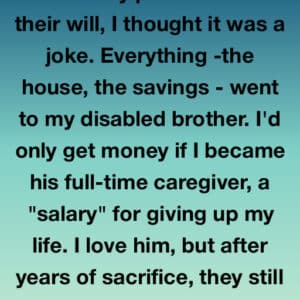It began as a harmless joke among friends—one of those impulsive, “why not?” moments that seemed funny at the time. But what followed changed everything.
A young woman recently shared her story online, hoping others might learn from what she described as “the scariest wake-up call of my life.” What started as a lighthearted prank quickly spiraled into a situation that left her emotionally shaken and, unexpectedly, the center of a viral discussion.
She never expected her post to gain traction. Within hours, her honesty and vulnerability drew thousands of readers, many applauding her courage for speaking so openly about what happened. But the story didn’t stay small for long — it snowballed into a national conversation that mixed sympathy, skepticism, and intense debate.
According to her account, the first signs that something was wrong were subtle. Strange messages began arriving from unknown senders. Her moods fluctuated without reason. Friends noticed she seemed distracted and anxious. She brushed it all off as stress — until the coincidences became too specific to ignore.
When her post went viral, online reactions split down the middle. Some commenters praised her for turning a painful experience into a lesson about self-awareness and digital safety. Others accused her of exaggerating, claiming her story was “too strange to be true.”
As interest grew, mental health experts and social commentators joined the conversation. They pointed out how impulsive decisions—especially those shared online—can create ripple effects that last far beyond the moment of laughter. They reminded readers that vulnerability, once uploaded, rarely stays private.
Her experience evolved from a simple anecdote into something bigger: a reflection on how easily the line between fun and regret can blur in the digital age.
In the end, her story became a cautionary reminder that in a world where everything can be recorded, posted, and shared, even the most innocent joke can echo in ways no one expects.





